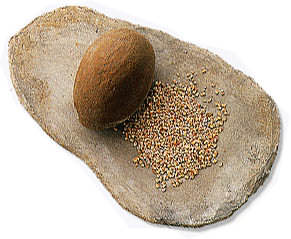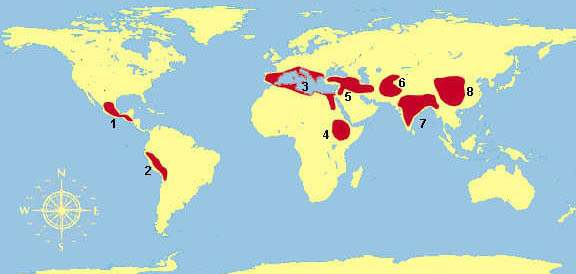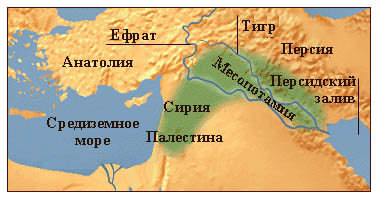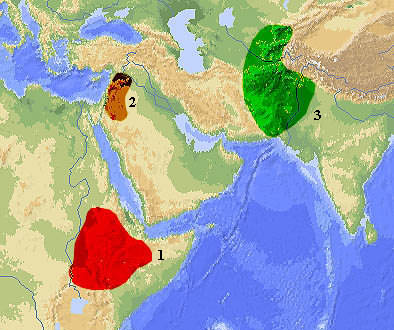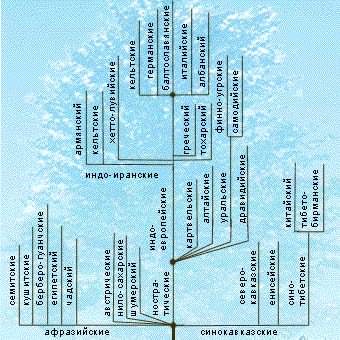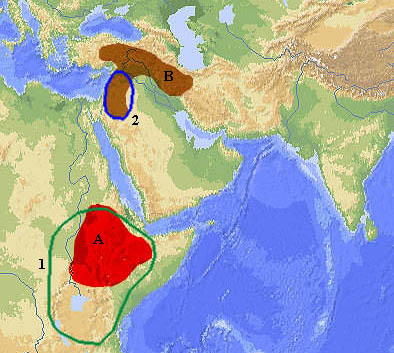 |
 |
 |
 |
A.Sklyarov "Heritage of drunk gods"("Fight for a crop: for whom and what for it was necessary...") "That is great - who is silent being tipsy" Popular wisdom.
Agriculture - one of basic and major elements of civilization as such. As a matter of fact it is an axiom of a modern view to our history. Formation that we understand as terms "society" and "civilization" exactly is connected to development of agriculture and transition to a settled way of life. Where there was no transition to agriculture, there was no also a civilization. And even our modern industrial and technologically advanced society, whatever one may do, is impossible without an agriculture providing with a feed billions of people. The question on that as well as why primitive people went from hunting and collecting to ground cultivation is considered solved for a long time and it is rather tedious section of such science as political economy. Any schoolboy in the slightest degree of competent can state to you the version of the given section which simplified variant is included to a course of an ancient history. It is seem to be clear: primitive hunter and collector very strongly depend on a nature environmental him. The whole of life of the ancient person was struggle for existence in which the lion's share of time was occupied with search of food. And thereof all progress of the people was limited to rather insignificant perfection of instruments of livelihood procuring. At any stage (according to official point of view) growth of number of people on our planet has resulted to that hunting and collecting could not support all members of a primitive community any more for which there was a unique exit: to master the new form of activity - agriculture for that in particular a settled way of life was required. Transition to agriculture automatically stimulated development of instruments technology, development of construction of stationary habitation, formation of social norms of public relations etc., i.e. it was "a trigger" of fast people promotion on a civilization way. * * * The given sketch seems so logical and even obvious, that everything, somehow not arranging, have accepted it for true practically at once... And all would be good, but rough development of a science recently has caused active revision of many "base" and apparently firm before theories and sketchs. And a "classical" view to a problem of people transition from primitive primitive existence to agriculture has begun to go to pieces. The first and perhaps the most serious "disturbers of calmness" were ethnographers who have found out that primitive communities kept until recently are not blended at all with a harmonous picture drew by political economy. Laws of behaviour and life of these primitive communities not simply appeared "annoying exceptions" but radically contradicted to that sketch accoding to which the primitive society should behave. First of all, the highest efficiency of collecting was revealed: "Both ethnography and archeology have accumulated to present time a large amount of the data from which follows that appropriating economy - hunting, collecting and fishery - frequently provide even more stable existence than early forms of agriculture do... Generalization of such facts already in the beginning of our century has resulted Polish ethnographer L.Krishivitsky to the conclusion that "under normal conditions the food at the order of the primitive person is more than it is enough". Researches of last decades not only confirm this position but also concretize it with the help of comparisons, statistics, measurements" (L.Vishnjatsky, "From benefit to profit"). "Balancing on the verge of starvation of those who conducted appropriating economy is not characteristic but contrary rather rare situation. Famine for them is not norm but exception. It first. Second, nutrition quality of members of such groups as a rule meets the requirements of the most strict modern dieticians" (ibidem). "Efficiency of strong specialized gatherer work is simply amazing. Even when conditions of environment were extremely adverse primitive collector showed surprising abilities in maintenance of foodstuffs" (A.Lobok, "History smack"). Also the fact is important enough, that "appropriating economy is effective not only in the sense that it quite provides primitive people with all necessary for life, but also and that it is achieved thanks to rather modest physical efforts. It is counted up that on the average "the working day" hunters - collectors last from three till five, and it is quite enough, as it appears. Besides as a rule children do not accept direct participation in economic activities, and adults, especially the man, presume to distract from "proses week" at date of another and to be engaged more "raised" business" (L.Vishnjatsky, "From benefit to profit"). Life of the "primitive" hunter and collector in general appeared is rather far from all-consuming and severe struggle for existence. "...The data of modern ethnographic researches convincingly testify that vital practice of the primitive tribes which have kept the cultural self-identity down to present time has no anything common with daily exhausting work of the agricultural person "all day long"... Process of getting of livelihood itself for the primitive hunter namely is a hunting which in many respects is constructed on game and passion. And what such hunting? Hunting is really that "it would be desirable", that is made "with eagerly" instead of under pressure of external necessity. And "collecting" - the second traditional source of livelihood for primitive person - is original "hunting" too, it is game, hazardous search, but it is not exhausting work in any way" (A.Lobok, "History smack"). [Here is a words play: in Russian "hunting" and "desire" is written equally] Anyone can understand and experience that: in a modern society to gather mushrooms and berries one go much more often because of passion of search rather than for maintenance of meal. And hunting in general has turned to entertainment of people with a prosperity. Both that and another is considered as rest already for a long time. "Hunter can not feel weariness even with biggest power consumptions: energy of natural passion gives him force. And on the contrary: the farmer is capable to test satisfaction from a kind of the collected crop, but process of ground cultivation itself is perceived by him as burdensome necessity, as heavy work which sense can be found out only in the future crop for the sake of which "sacrifice of work" is made only" (ibidem). People were engaged in hunting and collecting during hundred thousand and millions years, therefore in their mentality (in that its part which is inherited) the appropriate structures - arhetypes causing passion and pleasure from the process of hunting and collecting were fixed. Actually the mechanism of work of these structures-arhetypes in many respects is similar to the mechanism of instinct of animal which the given instinct rescues from starvation. On the contrary, alien to the person and his mentality, "unnatural" for his nature activity will be inevitable to cause displeasure in him. Therefore tiresomeness of onerous agricultural work testifies to certain "unnaturalness" in particular of this work for the person too or, at least, about rather short duration of this sort of activity for a human kind. * * * But for the sake of what then it is made "sacrifice of work"?.. Really game does cost candles?.. Accoding official viewpoint the farmer struggles for a crop to provide himself full and stable idle life after ending of gathering up to the following season of works. However when the question on transition from hunting and collecting to agriculture is considered we subconsciously represent the modern advanced agriculture and somehow we overlook that the question is archaic, primitive agriculture... "...Early agriculture is extremely difficult and its efficiency is rather and rather low. Art of agriculture is too difficult art that the beginner without experience could achieve some serious successes" (ibidem). "... Cereals become base agricultural culture of the Neolithic person in those cases which have resulted eventually in occurrence of the phenomenon of civilization. They are completely not today's cereals behind which millenia of a history of cultural agriculture, but wild wheat - oneseed or twoseed and also double-row barley, the Neolithic person starts to tame just these wild plants. Food efficiency of these plants is not too high - whether you will receive a lot of grain, even if you will sow them the big field! If the problem would really consist in search of new sources of livelihood, it would be natural to assume that agrotechnical experiments will begin with the plants having large fruits and giving the big crops already in wild forms" (ibidem). Even in the "not cultivated" condition tuber crops ten and more times surpass cereals and leguminous in productivity, however the ancient person for any reasons suddenly ignores this fact which is taking place in literal sense near by him. Besides the pathbreaker-farmer for some reason considers that he has not enough difficulties additionally loaded on to himself and he complicates to himself a problem, entering also upon the most difficult processing of a crop what only could be thought up even more. "Grain is extremely toilful product not only from the point of view of cultivation and harvesting but also from the point of view of its culinary processing. First of all it is necessary to solve a problem of seeds peel from a strong and firm shell in which it is. And it needs the special stone industry - the industry stone mortars and pestles with which help the given procedure is carried out " (ibidem). "...The main difficulties begin after that. Ancient farmers pound to a flour the received integral grains on special stone grain-graters - original manual "millstones", and the degree of labour input of this procedure, perhaps, has not equal. It would seem, it is a riddle again: you see it is more easier to cook porridge and not to be tormented with transformation of grains into flour. As nutritional value does not suffer from it at all. However the fact remains the fact: since X millenia BC "the cereal mankind" creates the whole industry of grain-graters, transforming grains to a flour and the process of grain treatment - to the real torment" (ibidem). (Fig. 1) [Here is a words play too: in Russian " flour " and " torment " is written equally; the accent differs only]
Fig. 1. Stone grain-grater.
What this hero - grain-grower receives in exchange for shock overcoming difficulties created as though to himself?.. According the official view point of political economy, with transition to agriculture people solve "food problems" and become less dependent from whims of environmental nature. But the objective and unbiassed analysis categorically rejects this statement, - life only becomes complicated. On set of parameters early agriculture worsens conditions of existence of the ancient person. In particular, "adhering" him to the ground and imprisoning his maneuver at adverse conditions, it frequently results in the heavy hunger-strikes practically unfamiliar to hunters and collectors. "In comparison with early farmers, with people mastering elements of making economy, hunters-collectors in every respect are in much more advantageous position. Farmers depend on whims of a nature as their economy is not so flexible more, as a matter of fact they are adhered to one place and to rather limited circle of resources. The diet of them is more monotonous and poorer as a whole. And certainly in comparison with hunting and collecting the economy of farmers is more toilfully - fields demand continual care and nursing" (L.Vishnjatsky, "From benefit to profit"). "Farmers sharply lose in mobility, in freedom of moving, and the main thing is that agricultural work takes away many time and leaves ever less opportunities to be engaged in hunting and collecting on "parallel" bases. And it is no wonder that at early steps development of agriculture not only did not give any advantages, but also on the contrary resulted in appreciable deterioration of life. Whether is it necessary to be surprised that one of the nearest consequences of transition to agriculture becomes reduction of life expectancy?" (A.Lobok, "History smack"). "Besides in opinion of the majority of scientists, populous and dense agriculture and cattle-breeding settlements were subject to infections in a much more degree than settlements of the hunters living usually small groups on twenty five - fifty person" (L.Vishnjatsky, "From benefit to profit"). Well, how much logical and natural does transition of our ancestors from hunting and collecting to agriculture look now?.. It is thought, it looks so as far as the standard point of view on the given question appears "clear and obvious" to us (in view of set forth above)... No doubt, it suffers crash absolute on all positions!!! * * * Ethnographers for a long time were already convinced that the so-called "primitive" person is not so silly at all to plunge itself into so severe tests what arise on "way to civilization". "It is possible to consider - the fact is quite established that many groups of hunters-collectors living side by side with farmers and cattlemens were well familiar both with agriculture and cattle breeding. However it has not caused at all immediate transition from hunting to cattle breeding, from collecting - to agriculture" (ibidem). "Borrowing... has especially selective character - only that what is easily blended with traditional way of life, does not break it and does not demand radical reorganization is adopted. Say, the instruments raise efficiency of hunting are borrowed. For example by the archeologic data, in Southern Africa Bushmens adjoined to cattlemen - gottentots already at least from the beginning of our era and, hence, not less than two millenia had near by "the visual aid" on studying making economy. Also what? Only in our century they began to pass from habitual existence due to hunting and collecting to forms of life-support new to them. Also they do it only under pressure of severe necessity - in conditions of quickly growing scanty nature" (ibidem). In view of the lacks of early agriculture revealed to the present time it becomes absolutely clear, why ethnographers have not found out in hunters-collectors of any aspiration to begin life on an image and similarity of the neighbours of farmers. The payment for "progress" appears too high, and progress is doubtful. And cause is not laziness at all though "laziness" could bring in the contribution too... The aphorism "the person is lazy on his nature" has a deep basis: as any other alive system the person aspires to desirable result trying to spend as small as possible energy. Therefore for the sake of meal maintenance he simply does not have sense to give up hunting and collecting and to pass to exhausting work of the farmer. But for what reasons free hunters and collectors at the beginning of our history nevertheless have refused traditional forms of self-maintenance with the foodstuffs and have set up on themselves yoke of hardest work? Can be, by some any force majeure circumstances and under their pressure our far ancestors were compelled to leave kind and quiet life of consumers of natural gifts and to pass to existence of the farmer filled wearisome work?.. * * * |
 |
 |
 |
 |
